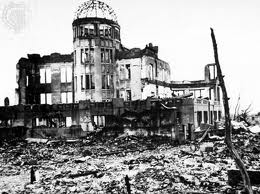Back in November when I was at ComicCon, promoting the Manitoba Writer’s Guild, I encountered a lot of new writers and pre-writers (those that want to write, but haven’t started yet). One question came at me over and over. “How do I start?”
Today I’m here to tell you, in very simple terms, how to start.
1. Write one paragraph describing what your story is about. Just one paragraph, so you know where you’re headed. Keep it simple and open.
Three genius brothers stumble upon a means of time travel and accidentally transport themselves to Hiroshima, Japan on July 31, 1945. They have a week before the bomb is dropped to figure out how to get themselves back home.
This paragraph helps you to anchor yourself and keep your story on track. It gives us a loose structure. We know we need three brothers. We know our setting—initially the present and then World War II Japan.
2. Decide on a protagonist—your lead character. You will tell the story from their point of view (POV). Notice that the word “character” is not plural. You want to tell the story from five different perspectives? Too bad. This is your first book. My children are pianists—they started with Hot Cross Buns, not Bach’s Piano Concerto #7 and so you start with one protagonist.
But how do you choose? Which time travel brother should be my protagonist? My protagonist should be the character that undergoes the most change. The change could be physical, emotional, spiritual, ideological.
For my time travel boys I’m going to choose the youngest of the three. He’s arrogant, thinks he’s smarter than his brothers, and risks their lives and the time-space continuum when he ventures out on his own. The other brothers will be secondary characters.
3. What is your inciting incident? The inciting incident is the event that sparks the rest of your story. It’s the kick that gets the ball rolling. It doesn’t have to be a big kick, just one change that will, in the end, change your protagonist’s life. In the hunger games it was “the reaping.” In Twilight it was Bella moving in with her dad. In The Fault in Our Stars it was Hazel going to the support group. In Pride and Prejudice it was Mr. Bingley moving into town.
 In my time travel story the brothers get into a big fight and one of them gets shoved and trips over wires, short circuiting their experiment. Sparks fly and the next thing they know they’re in Japan.
In my time travel story the brothers get into a big fight and one of them gets shoved and trips over wires, short circuiting their experiment. Sparks fly and the next thing they know they’re in Japan.
4. Decide if you’re going to tell the story in first person or third person. In first person POV the story is told as though it’s your story. I tripped over the wires. I got transported back in time. First person is limiting in that the story has to be limited to what that person can personally know. He can’t know that his older brothers are scheming against him in the next room. Though it can be limiting, first person draws the reader directly into the head of the main character and gives the reader intimacy and a tighter bond with the protagonist.
In third person the story is told from an outside POV. He tripped over the wires. He got transported back in time. Though, as a narrator, you could make yourself all-knowing, I still recommend sticking close to your protagonist so your reader can bond with him.
Now start writing. You know where your story begins. You know who you’re writing about. You know your setting. You know your main character and some of your secondary characters. You know who is telling your story.
Griff Karaplis got suspended for cloning the frog he was supposed to be dissecting in biology class. No great loss. His older brothers, Cal and Nate, had been stuck at home since they hacked into the Homeland Security main frame from the school computer lab and implicated Principal Skinner’s cat in a terrorist plot…
This is your rough draft. Don’t worry about Grammar and chapters and if your characters change part-way through. Just write. My first book has been through at least twenty drafts. This is not to discourage you, only to give yourself permission not to nit-pick. Set aside some time every week to write. Keep going and don’t give up.

Thank you, excellent post!!
LikeLike
You’re welcome. Glad you enjoyed it!
LikeLike
OK, Mindy. This is the year. Really.
LikeLike
I’m going to hold you to that, Eleanor.:)
LikeLike